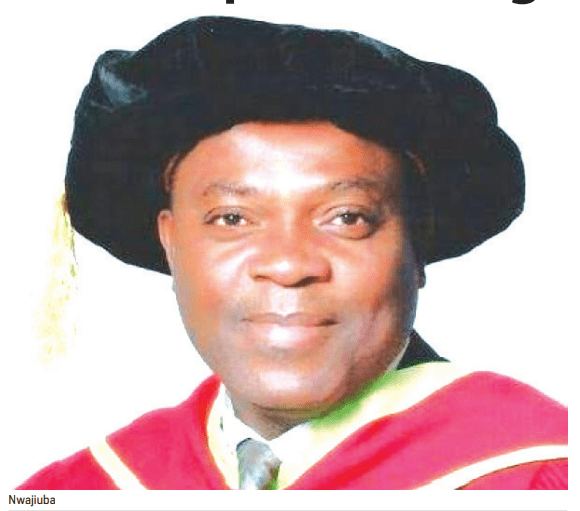Civil Society Organisations (CSOs) and Non-Governmental Organisations (NGOs) operating in Nigeria have been charged to brace up for an emerging adverse global environment.
Chairman, Board of Directors, Nigerian Environmental Study Action Team (NEST), Prof. Chinedum Nwajiuba, gave the charge, while addressing programme staff of the organisation in Ibadan, Oyo State.
He said reliance on international sources of funding is becoming challenging as the global financial situation, as well as emerging changes in global geopolitics, is redefining the world economic systems and order.
NEST, founded in 1987, 38 years ago, by local and international experts with support from international organisations, is about the earliest NGOs in Nigeria, focused on the environment and has made fundamental contributions to the management of the Nigeria environment.
Prof. Nwajiuba, specifically pointed at the recent policy situation that emerged since the January 20 inauguration of President Donald Trump and the withdrawal of support by the United States to less developed countries.
The United States has withdrawn from the World Health Organization (WHO) and Paris Climate Accord. It has also shut down the United States Agency for International Development (USAID), an independent agency of the United States government responsible for administering civilian foreign aid and development assistance.
According to the immediate past Vice Chancellor of Alex Ekwueme Federal University, Ndufu- Alike, Ikwo, Ebonyi State (AE-FUNAI), it is a pill too difficult to swallow for the largest economy in the world, and by far the greatest contributor to global aid to abandon her commitments with urgency, without a window and a period for CSOs and NGOs to seek alternatives.
He noted that already, withdrawal of funding by the United States Centre for Disease Control (CDC) and USAID has an immediate adverse impact on health management in Nigeria as well as the agencies and people benefitting from such support.
His words: “CSOs and NGOs in the field of health are already putting staff on alert of disengagement, while some have already commenced disengaging staff.
Unfortunately, this is also a time of great economic turmoil in Nigeria, with workers and families struggling to meet basic needs. To add job loss to this scenario is very painful.
“Support for persons living with HIV/AIDS is under serious threat, and the Nigeria government may not be able to fill the gap.
In fact, in many cases, the public health sector in Nigeria relies on this support. The situation in the health sector is dire, and the gains made in controlling HIV/AIDs and other diseases may be reversed.”
On climate change, the NEST chairman, said the organisation that delivered the flagship and most cited document on climate change in Nigeria, the National Adaptation Strategy and Plan of Action Climate Change in Nigeria (NASPA-CCN), bemoans the likely adverse consequences of the emerging scenario with the United States second withdrawal from the Paris climate agreement.
“This is happening at a time all hands should be on deck to ramp up climate finance to ensure decisive actions towards achieving the goals of the Paris Agreement. Sadly, the world is not on track to achieve that. Global financial agreements and commitments, especially for very urgent adaptation needs in Africa, are way below expectation.
“Funding for mitigation actions is also below expectations. To have the United States withdraw could send a wrong signal,” Prof. Nwajiuba said, while pleading with other major economies not to follow the same.
He commended the Republic of Germany, which he said, stepped up to fill the gap the last time the United States withdrew from the WHO.
This time, he said he hopes that other countries, including the emerging and vibrant economies to the global east, will be able to do the same for our shared common humanity. He then called for CSOs and NGOs in Nigeria to re-strategize, look in other directions, and seek local sources of funding.















